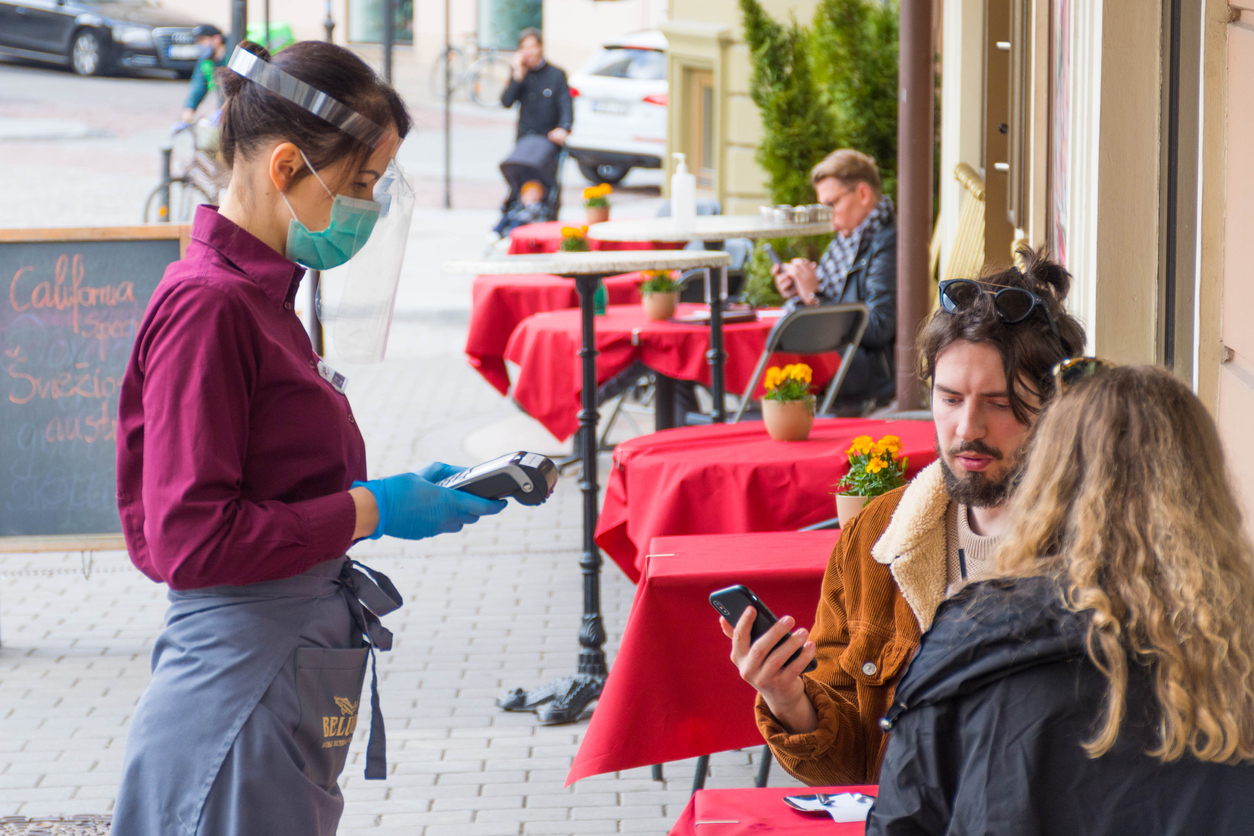The global COVID-19 pandemic has been an unprecedented disaster for countless hospitality outlets and it’s understandable that you’re desperate to start reopening your restaurant as soon as regulations allow.
But despite huge advances in restaurant technology, it’s not as simple as just putting a “We’re Open” sign in the window and waiting for hordes of hungry customers to rush through the door.
The safety and financial implications of the coronavirus will remain serious, even as lockdowns begin to ease. And the businesses that survive will be those that make sure that they fully prepared for how to trade through the pandemic – before they open up again.
We’ve set out below the key issues you need to consider.
Safety and Liability Issues
Firstly, and most importantly, you must only reopen when authorized by your state and local governments to do so – and only in strict compliance with any mandates regarding capacity, social distancing and the wearing of face masks etc.
Secondly, be aware that compliance with relevant regulations, though essential, does not in itself mean that you have met your legal duty to provide your employees with a safe place to work, and your customers a safe place to visit.
The safety of your staff and customers should therefore be your overriding priority when deciding to reopen. The provision of appropriate personal protection equipment (PPE) for employees, and the construction of perspex screens at checkout and reception are excellent first steps, which will go a long way towards building confidence on both sides.
Deep Clean
Whether mandated by the authorities or not, a deep clean of your kitchens and entire premises before reopening is essential to gaining the confidence and trust of both staff and customers.
The subsequent frequent sanitizing of all frequently touched surfaces – both front of house and staff-only areas- in addition, of course, to the observance all usual food hygiene standards- will then help maintain that confidence as pandemic restrictions are eased.
Restaurant Technology
Depending on the type of outlet you run you might also consider the introduction of digital menus, online ordering from home or table and a contactless payment option for your POS system. All of these are restaurant technologies that can help reduce the risk of infection and get your customers ordering with confidence when reopening your restaurant.
Financial Considerations
While businesses are naturally excited to be reopening their doors, the reality is that most, and perhaps especially those in the restaurant and hospitality sectors, are likely to be running at significantly less than optimum capacity for some time to come – both because of government-mandated restrictions and perhaps a reluctance on the part of some customers to venture out again.
So with considerably reduced incomes, in what is already an industry that exists on the tightest of margins, restaurants will need to have a long hard look at their finances if they are to survive.
Business Interruption Insurance
The first step is to check your business insurance policies and see if you have any element of business interruption coverage. While insurers are naturally keen to exclude the coronavirus pandemic as trigger for any payouts, there are legislative moves afoot in some states to compel them to provide coverage.
It is worth notifying your insurer of a potential claim, even if it is initially denied, to ensure that you do not fall foul of any required notice period.
Talk to Your Landlord
Next, talk to your landlord about the possibility of renegotiating your lease to reflect your changed circumstances. This might mean a reduction in rent, a payment holiday or a deferral. Naturally, landlords are unlikely to be enthusiastic about such a request, but neither is it a good time for them be looking for new tenants.
Better, probably, for them to have a temporarily reduced income from an established lessee rather than zero from shuttered premises.
It’s also worth contacting your local and state government offices to see whether there may have been any reduction in the costs of your necessary licenses and permits because of your mandated closure.
Review Your Business Plan
Finally, you will probably need to undertake a comprehensive review of your current year profit and loss forecasts to reflect the likely reduction in your normal operating income. Stock orders and menus, staffing levels and opening hours may all have to be reviewed in the light of the new reality, to ensure that your income will at least match your expenses.
With all these measures in place, your business will be as well placed as it can possibly be to thrive during what may well be an extended period of the “new normal”.

